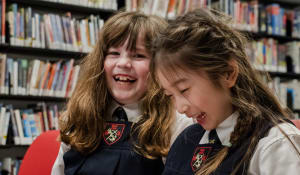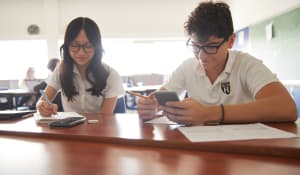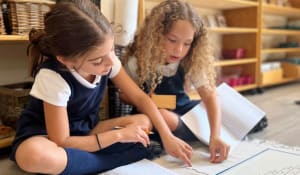So I think there's never a more vital time when young people realize that they're lives, their very survival, is made possible because of nature. It's nature that gives us our clean air, our clean water, our clean food that comes from the soil and without nature we can't exist, and yet our children today are spending the least amount of time outside of any generation in human history. So we've got a real challenge.

Photo by The David Suzuki Foundation
Q: How can educators and schools help students acquire environmental awareness, knowledge and appreciation?
A: I think there's a great effort now into modifying and changing curricula so that the environment is not just a special subject but includes core ideas in mathematics, history, or any of the areas that have a fundamental view through our biological nature. Our need for nature has got to be spread throughout every subject. So it's just a part of what we are as human beings – we understand that we need nature for our very survival and our health. There are programs starting with their curricular changes. I was just out in the Ontario Institute for Studies in Education and they're working on a new kind of inquiry-based education in which the students ask about the world around them and they learn a lot of these fundamental things. So I think the schools have done a huge job in spreading much greater environmental awareness to their students.
Q: How can parents help students acquire environmental awareness, knowledge and appreciation?
A: Well, parents are the big challenge. I think parents by the time they've gotten their education, got a job, got married, got a house, have children, then when they're confronted with environmentalists who say you've got to change your way, they don't like that. It's very difficult once you've kind of established yourself in a comfortable position to say, 'Oh, I'm going to have to give up my car or whatever.' So for parents, we have to think beyond just material stuff and money and start thinking what was the world like when I was a child. And at the rate we're going now, what do we think it will be like when my children are grown up and have their own families. And when you think about it that way, you realize, 'Oh my god, when I was a kid I used to go fishing in that creek, there aren't any fish left there.' They've got to think much more about their children's future in ecological terms, in terms of the environment.
Q: What is your most important message for youth?
A: What's happening now is all about their future. Whether the government does or does not do what I think they should do is going to have very little impact on my life. I'm at the end of my life. But whatever the government does or does not do, or business does or does not do, will have repercussions through the entire lives of our young people. So they have the most at stake. And they can't just wait for adults to change or do something. They've got to get involved, and because they're young people, I believe that you can't deny or deflect what they're saying. They speak from the heart, and if we love our children, we've got to listen to them and we've got to start changing into a way that will give them some kind of future. Right now, it's looking very, very grim for our children.
Q: Do you have any plans to help schools teach students these environmental skills and knowledge?
A: This is the beginning, what we saw today with the TelePresence (webinar) is what I hope is going to let me into the schools. Up until now I've resisted going into schools because there's so many of them, and if I go into one then how can I turn another one down? I get dozens and dozens of requests every month for speaking but now with TelePresence and the ability to hooking up many schools, this is a whole new world for me and I'm certain the foundation is going to be very heavily involved in this.






















